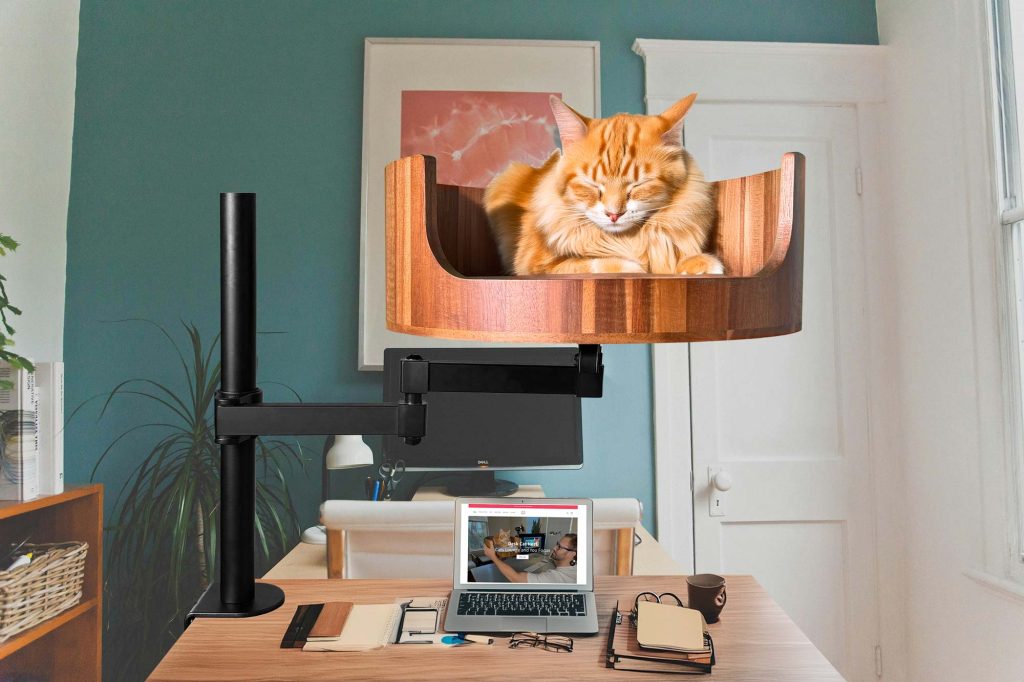Is your cat driving you crazy with incessant meowing? You’re not alone. Many cat owners experience this frustrating behavior, often wondering what is causing their feline friend to be so vocal. In this article, we will explore the reasons behind your cat’s non-stop meowing and provide you with some insight into understanding this common behavior.
From the moment you brought your cat home, you may have noticed that they have a wide range of vocalizations, from purring to hissing to, of course, meowing. While some meowing is normal and necessary for communication, excessive meowing can indicate stress, boredom, or even a medical issue. By understanding the motivations behind your cat’s meowing, you can better address their needs and create a happier, more peaceful environment for both you and your furry companion. So, if you’re tired of hearing your cat’s constant meowing and want to find a solution, read on to find out how to decipher their meows and address the underlying causes of this behavior.
1. Cats use meowing to communicate their needs and desires, such as hunger, stress, or seeking attention.
2. Excessive meowing could indicate underlying health issues, so it’s important to consult a vet if your cat’s behavior changes suddenly.
3. Environmental factors, such as changes in routine or the addition of a new pet, can trigger increased meowing in cats.
4. Providing mental and physical stimulation, such as interactive toys and playtime, can help reduce excessive meowing.
5. Understanding and addressing the root cause of your cat’s meowing behavior is crucial for creating a harmonious and happy home environment.
Physical Needs and Health Issues
Cats may meow excessively if they are experiencing physical discomfort or health issues. It’s important to ensure that your cat has access to fresh water, a clean litter box, and a comfortable resting place. Additionally, regular veterinary check-ups can help identify any underlying health issues that may be causing your cat to meow excessively. For example, hyperthyroidism, dental problems, or kidney disease could all be potential reasons for increased vocalization in cats.
Attention-Seeking Behavior
Sometimes, cats will meow excessively to get their owner’s attention. This could be due to boredom, loneliness, or even a desire for more food or playtime. Providing your cat with interactive toys, regular play sessions, and quality time together can help alleviate attention-seeking behavior. It’s also important to establish a routine for feeding, playtime, and cuddles to help your cat feel secure and content.
Stress and Anxiety
Cats can meow excessively when they are feeling stressed or anxious. Changes in their environment, such as moving to a new home, introducing a new pet, or loud noises, can all trigger increased vocalization in cats. Creating a calm and safe space for your cat, providing hiding spots, and using pheromone diffusers can help reduce stress and anxiety in your feline friend. In severe cases, consulting with a veterinarian or animal behaviorist may be necessary to address your cat’s emotional well-being.
Desk Cat Nest FAQ
How can a Desk Cat Nest help with my cat’s constant meowing?
A Desk Cat Nest provides your cat with a cozy and comfortable space to rest and relax, which can help reduce stress and anxiety that may be causing excessive meowing. Having a designated space for your cat can also give them a sense of security and ownership in your home.
Will my cat actually use the Desk Cat Nest?
Most cats are naturally drawn to small, enclosed spaces where they can curl up and feel safe. By placing the Desk Cat Nest in a quiet and low-traffic area of your home, your cat is more likely to use it as a cozy spot to retreat to when they feel overwhelmed or anxious.
Can I customize the Desk Cat Nest to better suit my cat’s preferences?
Yes, you can add familiar bedding or toys to the Desk Cat Nest to make it even more appealing to your cat. Additionally, placing the Desk Cat Nest near a window or in a sunny spot can provide your cat with entertainment and stimulation while they relax in their new space.
How long does it take for a cat to adjust to using a Desk Cat Nest?
Every cat is different, so it may take some time for your cat to become comfortable with the Desk Cat Nest. Be patient and allow your cat to explore and get accustomed to the new space at their own pace. Positive reinforcement, such as giving treats or praise when your cat uses the Desk Cat Nest, can also help speed up the adjustment process.
Is the Desk Cat Nest easy to clean and maintain?
Yes, the Desk Cat Nest is designed for easy cleaning and maintenance. The mattress and cover can be removed and washed as needed, and the solid construction of the Desk Cat Nest makes it durable and long-lasting for your cat to enjoy for years to come.
In conclusion, the Desk Cat Bed is a valuable solution for addressing the issue of a cat that won’t stop meowing. By providing a comfortable and secure space for your cat to rest and relax, the Desk Cat Bed can help reduce stress and anxiety, which are common causes of excessive meowing. Additionally, the elevated design of the bed can help your cat feel more in control of their environment, leading to a sense of security and contentment. Overall, the Desk Cat Bed is a practical and effective choice for improving your cat’s behavior and well-being.


